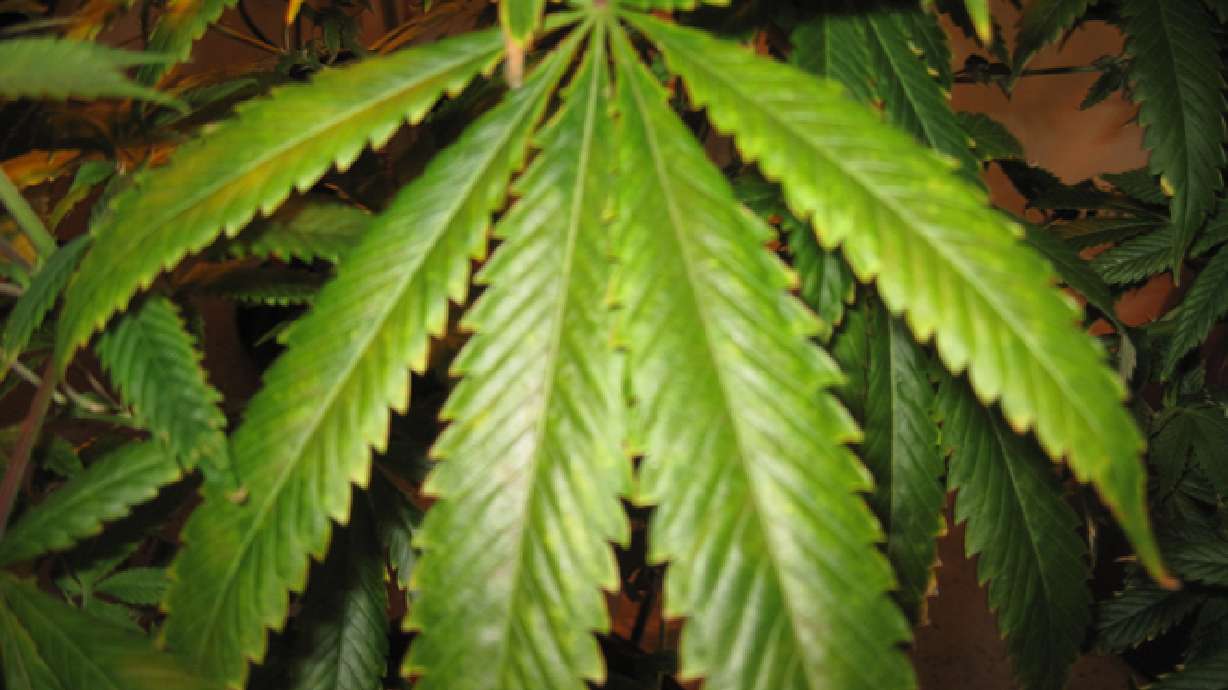Estimated read time: 3-4 minutes
This archived news story is available only for your personal, non-commercial use. Information in the story may be outdated or superseded by additional information. Reading or replaying the story in its archived form does not constitute a republication of the story.
ATLANTA, Georgia (CNN) — Teens who use marijuana daily before age 17 are more than 60 percent less likely to get their high school diploma than those who've never used pot, according to a new study published Tuesday in the journal The Lancet Psychiatry.
The study, done by researchers in Australia and New Zealand, is a meta-analysis of three previous long-running studies that included nearly 4,000 participants.
Researchers looked at links between frequent cannabis use and seven developmental outcomes up until the age of 30. They looked specifically at whether the teens completed high school, got a college degree, were dependent on marijuana, had attempted suicide, were diagnosed with depression, used other illegal drugs and/or relied on welfare to support themselves.
The study found daily adolescent users were 18 times more likely to become dependent on marijuana, seven times more likely to attempt suicide, and eight times more likely to use other illegal drugs in the future.
Researchers also found that while a causal link to depression and welfare dependence was unlikely, heavy marijuana use increased the odds. Evidence was not sufficient, according to the study authors, to support a causal link between marijuana use and suicide.
The findings are particularly timely given the growing movement to decriminalize or legalize cannabis.
–Edmund Silins
"The results provide very strong evidence for a more direct relationship between adolescence cannabis use and later harm," said lead author Edmund Silins with the National Drug and Alcohol Research Centre at the University of New South Wales, Australia. "The findings are particularly timely given the growing movement to decriminalize or legalize cannabis because this has raised the possibility the drug might become more accessible to young people."
The risks increased as the amount of marijuana used increased, according to researchers. They say those who used marijuana daily are at the greatest risk of poorer outcomes later in life. However, they admit these studies are limited in their ability to explain what's behind the associations.
Mason Tvert, communications director with the Marijuana Policy Project, said the study doesn't show using marijuana causes any of these problems; it just underscores a link between individuals who use marijuana and those who experience these types of problems.
"The article expressly states that there remains no evidence that using marijuana causes depression, suicide or dropping out of school," he said. "It simply shows that teens who are prone to developing these problems are more likely to have used marijuana."
"Nobody wants teens to use marijuana, but it's quite clear that it poses far less harm to the consumer and to others than the abuse of alcohol or prescription drugs."
The study authors said preventing or delaying cannabis use by teens is likely to have broad health and social benefits.
"Policy makers need to be aware that the early use of cannabis is associated with a range of negative outcomes for young adults that affect their health, well-being and also their achievement," Silins said. "The findings strongly suggest that any reforms to cannabis legislation should be carefully evaluated to make sure they reduce adolescence cannabis use and prevent potentially adverse effects on adolescent development."
According to the 2013 Monitoring the Future survey done in the United States, approximately 7 percent of high school seniors are daily or near-daily cannabis users. The annual study, funded by the National Institute on Drug Abuse, looks at behaviors and attitudes of eighth, 10th and 12th graders.
NIDA Director Dr. Nora Volkow says she was not surprised by the study's conclusions.
"This analysis is consistent with findings that show heavy marijuana users generally report lower life satisfaction, poorer mental and physical health, more relationship problems, and less academic and career success compared to non-marijuana-using peers," Volkow said. "The risk of addiction is also higher when use initiates as a teen. It is important that we continue to discourage young people from using marijuana."
The-CNN-Wire ™ & © 2014 Cable News Network, Inc., a Time Warner Company. All rights reserved.









